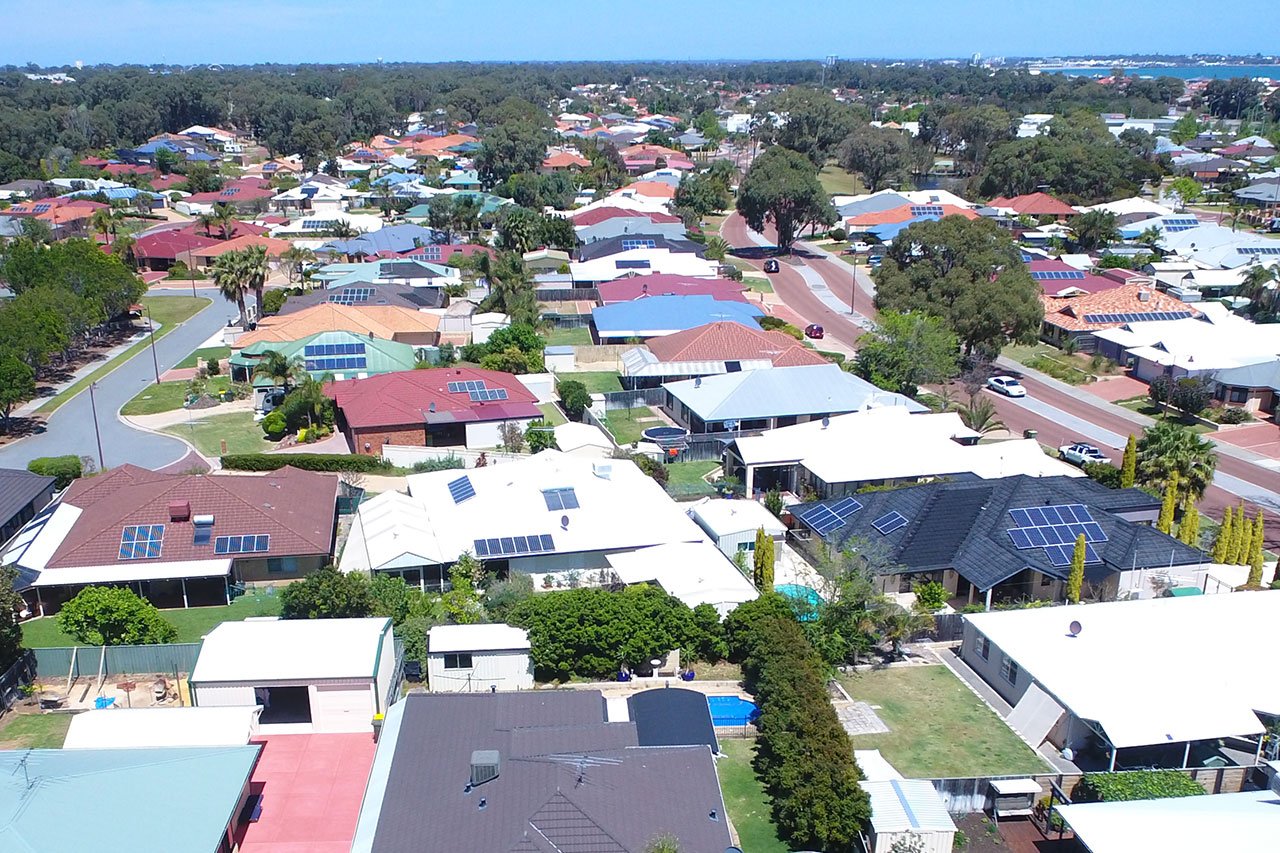Investing in a solar system is a significant decision, and it's important to choose the right system for your needs. When selecting a solar panel system, there are several key components to consider. Some decisions have straightforward answers, while others depend on your specific situation and budget.
How do I know what solar system I need?
How to choose a solar system will be defined by how much available unshaded roof space you have with access to sunshine. For residents of sunny WA, this is excellent news as ample sunshine is available.
The type of solar system you need also depends on other factors, including your regional climate and your electricity usage.
Understanding your circumstances will help determine the size of your solar system, the number of solar panels you need, and whether you should add battery storage.
The next thing to consider is the inverter.

Choose the right size inverter
A quality, appropriately sized inverter is at the heart of any solar system. The size of the inverter depends on your system size, though pairing a smaller inverter with a slightly larger system can be effective, as systems rarely run at full capacity.
Consult your solar retailer or installer for recommendations on inverter size relative to your system. Also, consider government rebates, and how the size of your system and inverter will impact your eligibility.
Consider what package you need
Beyond the inverter, consider the overall package, especially regarding solar battery storage. While battery storage is popular, it can be costly and has a shorter lifespan compared to solar panels.
The typical lifespan of a lithium-ion solar battery is up to 15 years. Evaluate your budget, payback period, and do thorough research on suppliers to ensure you make an informed decision. Pre-planning and preparation are key to purchasing the right solar system.
Visit the Clean Energy Council’s consumer buyer’s guide for comprehensive advice to make your solar panel purchase and installation a walk in the park.
What to look out for when choosing a solar system
When choosing a solar system, consider these factors:
1. Reliability
Ensure the system you choose is reliable. Assess the quality of all components, including the panels, inverter, and mounting system. Poor wiring can compromise safety and performance, so ensure it is done correctly during installation.
2. Reputation
Research the reputation of the company providing and installing your system. Solar retailers are not regulated so seek recommendations from friends or colleagues and read reviews. Choose a supplier with extensive experience to ensure they can handle any issues and offer ongoing support.
3. Warranty
Warranties provide assurance of product quality. Most solar panels come with a 25-year performance warranty, while inverter warranties vary. Ensure you understand the warranty terms and what is covered.
While certain circumstances, like weather, may be exempt from the warranty, a warranty is an assurance of the quality of the product, and should stand you in good stead for ensuring the performance of your system.
4. Accreditation
Western Power is a member of the Clean Energy Council, which endorses around 5,000 solar installers nationwide. Use theirwebsite to find accredited suppliers and ensure eligibility for government rebates by choosing accredited designers and installers.
5. Size
Every homeowner's needs are different, so tailor your solar system to your lifestyle and usage. Check your electricity bill to understand your usage and consult your installer or supplier for advice.
6. Battery Storage
While adding a battery to your system to bank the solar you’re not using may seem like an obvious solution, there are some other points to consider.
Consider if battery storage is right for you by evaluating how much power you will use and whether your system will generate enough excess energy. Assess the cost, payback period, and warranty of battery storage to make an informed decision.
What size solar system do I need?
The size of your solar system depends on your power needs and available sunny roof space. Look at your electricity bill to determine your average usage and consider the number of sunny hours in your area. Consult a solar installer or use the government’s online calculator, for estimates, considering potential shading and future energy needs.
Why choose solar power?
Choosing solar power benefits both your home and the environment. It helps power Australia towards a greener, cleaner, and more sustainable future. Solar power can add value to your home, reduce reliance on fluctuating energy prices, and lower your bills. With the right solar installer, the process is smooth and hassle-free. Choosing solar is the brighter choice for a sustainable future.
